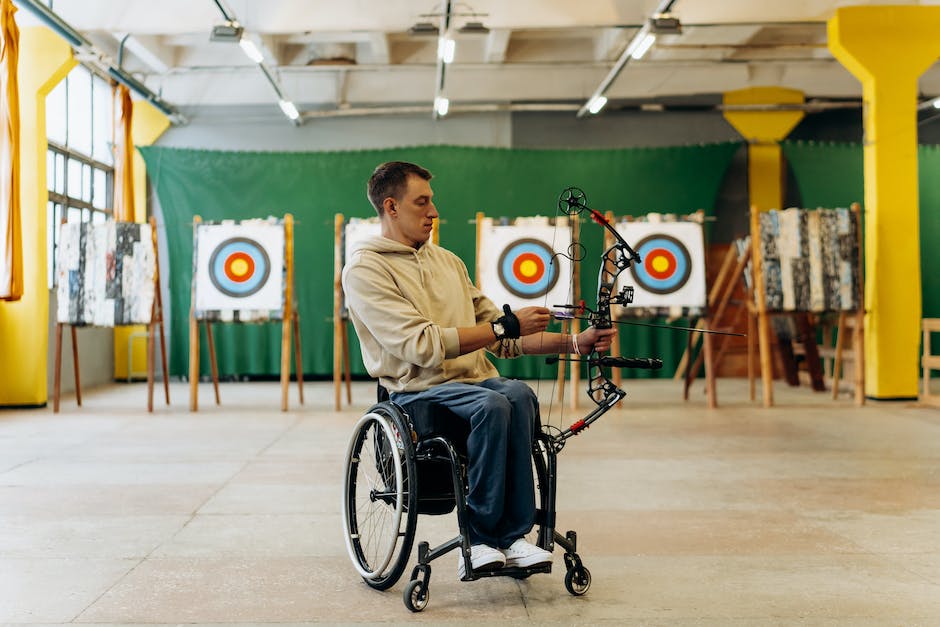Tennis is a popular sport that attracts millions of players and fans around the world. If you love tennis and want to share your passion and skills with others, becoming a tennis coach might be a rewarding career choice for you. But how do you become a tennis coach? What are the qualifications, skills and steps you need to take to pursue this profession? In this blog post, we will answer these questions and provide you with a complete guide on how to become a tennis coach.

What is a Tennis Coach?
A tennis coach is a professional who teaches and trains tennis players of different ages and skill levels. A tennis coach can work with individual players or groups, at local clubs, schools, academies or national associations. A tennis coach can also specialize in a specific area of the game, such as technique, tactics, fitness, psychology or nutrition.
A tennis coach’s main responsibilities include:
- Planning and delivering tennis lessons and programs that suit the needs and goals of the players
- Developing and improving the players’ technical, tactical, physical and mental skills
- Providing feedback and advice to the players on their performance and progress
- Evaluating and monitoring the players’ strengths and weaknesses
- Preparing the players for competitions and tournaments
- Motivating and inspiring the players to enjoy and excel in tennis
- Ensuring the safety and well-being of the players
- Keeping up to date with the latest trends and developments in tennis coaching
What are the Qualifications for Becoming a Tennis Coach?
The qualifications for becoming a tennis coach vary depending on the country, organization and level of coaching you want to pursue. However, some common qualifications include:
- Having a high school diploma or equivalent
- Having a strong background and experience in playing tennis
- Having a passion and enthusiasm for teaching and coaching tennis
- Having good communication, interpersonal and organizational skills
- Having a basic knowledge of sports science, anatomy, physiology and nutrition
- Having a valid certification from a recognized tennis coaching association

How to Get Certified as a Tennis Coach?
One of the most important steps in becoming a tennis coach is to get certified by a reputable tennis coaching association. Certification is not only a proof of your competence and credibility as a coach, but also a requirement for many employers and clients. Certification also provides you with access to various benefits, such as insurance, education, resources and networking opportunities.
There are many tennis coaching associations around the world that offer different levels and types of certification. Some of the most prominent ones include:
- The International Tennis Federation (ITF), which is the governing body of world tennis. The ITF offers four levels of certification: ITF Play Tennis Course, ITF Coaching Beginner and Intermediate Players Course, Coaching Advanced Players Course and Coaching High-Performance Players Course. The ITF certification is recognized in over 200 countries.
- The United States Professional Tennis Association (USPTA), which is one of the largest and oldest tennis coaching associations in the US. The USPTA offers five levels of certification: Professional, Elite Professional, Master Professional, Tester/Examiner and Specialist. The USPTA certification is accredited by the USTA.
- The Professional Tennis Registry (PTR), which is another leading tennis coaching association in the US. The PTR offers six levels of certification: 10 & Under, 11 to 17, Adult Development, Performance, Professional and Master of Tennis. The PTR certification is also accredited by the USTA.
To get certified by any of these associations, you need to meet certain eligibility criteria, such as having a minimum age, education, experience and membership. You also need to complete an application process that involves taking online courses, attending workshops, passing written exams and demonstrating your practical skills.

How to Find a Job as a Tennis Coach?
Once you have obtained your certification as a tennis coach, you can start looking for job opportunities in various settings. Some of the most common places where you can find work as a tennis coach include:
- Local tennis clubs: You can apply for coaching positions at local tennis clubs that offer recreational or competitive programs for members or non-members. You can also rent court time or space from local clubs to run your own private or group lessons.
- Schools: You can work as a coach for school teams or clubs that participate in interscholastic or intramural competitions. You can also offer after-school or summer programs for students who want to learn or improve their tennis skills.
- Academies: You can join an established academy that provides intensive training for aspiring or advanced players who want to pursue tennis as a career or scholarship opportunity. You can also start your own academy if you have enough resources and reputation.
- National associations: You can work as a coach for national associations that are responsible for developing and supporting elite players who represent their country in international events. You can also get involved in national coaching education programs that aim to improve the quality and standards of coaching across the country.
- Online platforms: You can use online platforms, such as websites, social media, blogs or podcasts, to promote your coaching services and reach a wider audience. You can also offer online courses, videos or consultations for players who want to learn from you remotely.

How to Advance Your Career as a Tennis Coach?
As a tennis coach, you can advance your career by pursuing further education, gaining more experience and expanding your network. Some of the ways you can do this include:
- Taking online courses: You can take online courses that cover various topics related to tennis coaching, such as sports psychology, biomechanics, nutrition, injury prevention and management, business and marketing. You can find many online courses offered by reputable tennis coaching associations or other organizations.
- Attending workshops and seminars: You can attend workshops and seminars that provide you with the opportunity to learn from experts, update your knowledge and skills, and exchange ideas and best practices with other coaches. You can find many workshops and seminars organized by tennis coaching associations or other entities.
- Obtaining higher certification: You can obtain higher certification by completing more advanced courses and meeting higher standards of performance and professionalism. Higher certification can enhance your credibility and recognition as a coach and open up more opportunities for you.
- Working with different players: You can work with different players of different ages, levels, styles and goals to broaden your experience and expertise as a coach. You can also work with players from different cultures and backgrounds to enrich your perspective and understanding of the game.
- Networking with other coaches: You can network with other coaches to build relationships, share information and resources, seek advice and support, and create collaborations and partnerships. You can network with other coaches through online platforms, events, associations or referrals.

Conclusion
Becoming a tennis coach is a rewarding career choice for anyone who loves tennis and wants to help others enjoy and excel in the sport. To become a tennis coach, you need to have a strong background and experience in playing tennis, a passion and enthusiasm for teaching and coaching tennis, good communication, interpersonal and organizational skills, a basic knowledge of sports science, anatomy, physiology and nutrition, and a valid certification from a recognized tennis coaching association. To find a job as a tennis coach, you can look for opportunities in various settings, such as local clubs, schools, academies, national associations or online platforms. To advance your career as a tennis coach, you can pursue further education, gain more experience and expand your network.
We hope this guide has given you a clear overview of how to become a tennis coach. If you are interested in pursuing this profession, we encourage you to take the first step by enrolling in an online course that will introduce you to the basics of tennis coaching. You can find many online courses that are suitable for beginners or intermediate players who want to learn how to coach themselves or others. One of the online courses we recommend is the Play Tennis Course offered by the International Tennis Federation (ITF). This course will teach you how to work with beginner players (ITN10) and 10 & under children, how to organize simple competitions, how to use correct equipment and court sizes for starter players, and how to apply the basic tactics and technique of tennis.
If you are ready to take the next step in your tennis coaching journey, we invite you to check out our website for more information on our coaching courses. We offer coaching courses for all levels of coaches, from beginner to advanced. Our coaching courses are based on the ITF Coach Education Programme, which is recognized in over 200 countries. Our coaching courses will provide you with the knowledge, skills and certification you need to become a successful tennis coach.
We hope you enjoyed reading this blog post and learned something new. If you have any questions or comments, please feel free to leave them below. We would love to hear from you. Thank you for your time and attention.

FAQ
How much does it cost to become a tennis coach?
The cost of becoming a tennis coach depends on the level and type of certification you want to obtain, as well as the association you choose to get certified by. Generally, the cost of certification includes an application fee, a membership fee, an online course fee, a workshop fee and an exam fee. The cost can range from a few hundred to a few thousand dollars, depending on the factors mentioned above. For example, the ITF Play Tennis Course costs $150, while the USPTA Master Professional certification costs $1,500.
How long does it take to become a tennis coach?
The time it takes to become a tennis coach also depends on the level and type of certification you want to obtain, as well as the association you choose to get certified by. Generally, the time it takes to complete the certification process includes the time for completing the online courses, attending the workshops, preparing for and taking the exams, and waiting for the results. The time can range from a few weeks to a few years, depending on the factors mentioned above. For example, the ITF Play Tennis Course can be completed in 4 weeks, while the USPTA Master Professional certification can take up to 5 years.
What are the benefits of becoming a tennis coach?
There are many benefits of becoming a tennis coach, such as:
- You can turn your passion and hobby into a profession
- You can help others learn and improve their tennis skills and enjoy the sport
- You can earn money from coaching fees or salaries
- You can work in flexible hours and locations
- You can travel and meet new people
- You can keep fit and healthy
- You can challenge yourself and grow as a coach and a person
What are the challenges of becoming a tennis coach?
There are also some challenges of becoming a tennis coach, such as:
- You need to invest time and money in getting certified and educated
- You need to keep up with the latest trends and developments in tennis coaching
- You need to deal with different types of players and personalities
- You need to handle pressure and expectations from players, parents, employers or clients
- You need to balance your personal and professional life
- You need to cope with stress and fatigue
How to choose the best tennis coaching association for me?
There is no definitive answer to this question, as different tennis coaching associations may have different advantages and disadvantages for different coaches. However, some factors you may want to consider when choosing a tennis coaching association include:
- The reputation and recognition of the association in your country or region
- The curriculum and standards of the association’s certification program
- The availability and accessibility of the association’s online courses, workshops and exams
- The cost and duration of the association’s certification process
- The benefits and support that the association provides for its members
You may also want to do some research on the websites of different tennis coaching associations, read reviews from other coaches who have been certified by them, or contact them directly for more information.
How to find clients as a tennis coach?
There are many ways to find clients as a tennis coach, such as:
- Advertising your services on online platforms, such as websites, social media, blogs or podcasts
- Creating a portfolio or resume that showcases your qualifications, skills and achievements as a coach
- Asking for referrals from your existing or previous clients or students
- Networking with other coaches or professionals in the tennis industry
- Applying for coaching positions at local clubs, schools, academies or national associations
How to set my rates as a tennis coach?
There is no fixed rule on how to set your rates as a tennis coach, as different coaches may charge differently based on various factors. However, some factors you may want to consider when setting your rates include:
- Your level of certification and experience as a coach
- Your location and demand for coaching services in your area
- Your target market and clientele
- Your overhead costs and expenses
- Your value proposition and competitive advantage
You may also want to do some market research on what other coaches are charging in your area or niche, or ask for feedback from your clients or peers.
How to improve my skills as a tennis coach?
There are many ways to improve your skills as a tennis coach, such as:
- Taking online courses that cover various topics related to tennis coaching
- Attending workshops and seminars that provide you with the opportunity to learn from experts and update your knowledge and skills
- Obtaining higher certification by completing more advanced courses and meeting higher standards of performance and professionalism
- Working with different players of different ages, levels, styles and goals to broaden your experience and expertise as a coach
- Networking with other coaches to build relationships, share information and resources, seek advice and support, and create collaborations and partnerships
How to deal with difficult players or parents as a tennis coach?
Dealing with difficult players or parents can be challenging as a tennis coach, but there are some strategies you can use to handle them effectively, such as:
- Establishing clear and realistic expectations and goals with them from the start
- Communicating with them regularly and openly about the progress and problems of the players
- Listening to their concerns and complaints with empathy and respect
- Providing constructive feedback and advice to the players and parents on how to improve or resolve the issues
- Seeking mediation or arbitration from a third party if the situation escalates or becomes unmanageable
How to balance my personal and professional life as a tennis coach?
Balancing your personal and professional life can be difficult as a tennis coach, especially if you work long or irregular hours, travel frequently, or have multiple commitments. However, there are some tips you can follow to achieve a better balance, such as:
- Setting boundaries and priorities for your work and personal life
- Creating a schedule or routine that allows you to allocate time for both work and personal activities
- Outsourcing or delegating some of your tasks or responsibilities to others
- Saying no to requests or opportunities that are not aligned with your goals or values
- Taking breaks and vacations to relax and recharge yourself








No Comment! Be the first one.